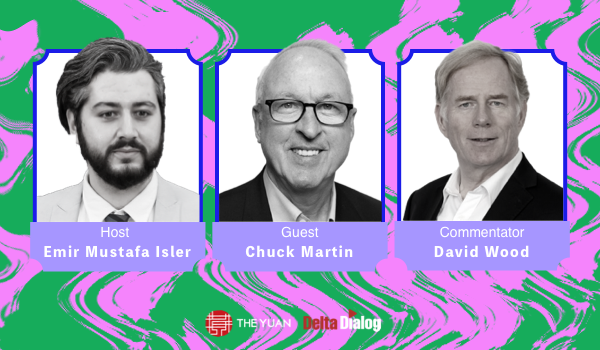
LONDON - The European Commission and Parliament were busily debating the Artificial Intelligence Act when GPT-4 launched on 14 March. As people realised that GPT technology was a game-changer, they called for the Act to be reconsidered. Famously, the EU contains no tech giants, so cutting edge AI is mostly developed in the US and China. But the EU is more than happy to act as the world’s most pro-active regulator of digital technologies, including AI. The 2016 General Data Protection Regulation (or GDPR) seeks to regulate data protection and privacy, and its impacts remain controversial today. The AI Act was proposed in 2021. It does not confer rights on individuals, but instead regulates the providers of artificial intelligence systems. It is a risk-based approach. John Higgins joins us in this episode to discuss the AI Act. John is the Chair of the Global Digital Foundation, a think tank, and last year he was president of BCS (British Computer Society), the professional body for the IT industry. He has had a long and distinguished career helping to shape digital policy in the UK and the EU.
Follow-up reading: https://www.globaldigitalfoundation.org/https://artificialintelligenceact.eu/ Topics addressed in this episode include:*) How different is generative AI from the productivity tools that have come before?*) Two approaches to regulation compared: a "Franco-German" approach and an "Anglo-American" approach*) The precautionary principle, for when a regulatory framework needs to be established in order to provide market confidence*) The EU's preference for regulating applications rather than regulating technology*) The types of application that matter most - when there is an impact on human rights and/or safety*) Regulations in the Act compared to the principles that good developers will in any case be following*) Problems with lack of information about the data sets used to train LLMs (Large Language Models)*) Enabling the flow, between the different "providers" within the AI value chain, of information about compliance*) Two potential alternatives to how the EU aims to regulate AI*) How an Act passes through EU legislation*) Conflicting assessments of the GDPR: a sledgehammer to crack a nut?*) Is it conceivable that LLMs will be banned in Europe?*) Why are there no tech giants in Europe? Does it matter?*) Other metrics for measuring the success of AI within Europe*) Strengths and weaknesses of the EU single market*) Reasons why the BCS opposed the moratorium proposed by the FLI: impracticality, asymmetry, benefits held back*) Some counterarguments in favour of the FLI position*) Projects undertaken by the Global Digital Foundation*) The role of AI in addressing (as well as exacerbating) hate speech*) Growing concerns over populism, polarisation, and post-truth*) The need for improved transparency and improved understanding Music: Spike Protein, by Koi Discovery, available under CC0 1.0 Public Domain Declaration





 209 views
209 views







